Hamas’ assault on Israel drove oil prices higher on Monday as markets priced in fears of a wider conflict in the Middle East, a day after Israel pounded the Palestinian enclave of Gaza in retaliation for one of the bloodiest attacks in its history.
Fighters from Islamist group Hamas killed 700 Israelis and abducted dozens more as they attacked Israeli towns on Saturday, the deadliest incursion into Is+raeli territory since Egypt and Syria’s attacks in the Yom Kippur war 50 years ago.
In response, Israeli air strikes hit housing blocks, tunnels, a mosque and homes of Hamas officials in Gaza on Sunday, killing more than 400 people, including 20 children, in keeping with Prime Minister Benjamin Netanyahu’s vow of “mighty vengeance”.
“The price the Gaza Strip will pay will be a very heavy one that will change reality for generations,” said Defence Minister Yoav Gallant in the town of Ofakim, which suffered casualties and had hostages taken.
The violence fuelled volatility on global markets on Monday, with concerns about possible disruptions to supplies from Iran, helping to drive Brent crude up $4.18, or 4.94%, to $88.76 a barrel by 0120 GMT in Asian trade.
Iran is an allay of Hamas and while it congratulated Hamas on the attack, its mission to the United Nations said Tehran was not involved in the attacks. read more
Any sustained rally in oil prices would act as a tax on consumers and add to global inflationary pressures, which weighed on equities as S&P 500 futures shed 0.7% and Nasdaq futures lost 0.6%.
Beyond blockaded Gaza, Israeli forces and Lebanon’s Iran-backed Hezbollah militia exchanged artillery and rocket fire, while in Egypt, two Israeli tourists were shot dead along with a guide.
Appeals for restraint came from around the world, though Western nations largely stood by Israel, while Iranian President Ebrahim Raisi telephoned the Hamas chief to congratulate him for the “victory” and Hezbollah and protesters in various Middle Eastern nations lauded Hamas.
In southern Israel on Sunday, Hamas gunmen were still fighting Israeli security forces more than 24 hours after their surprise, multi-pronged assault of rocket barrages and bands of gunmen who overran army bases and invaded border towns.
“My two little girls, they’re only babies. They’re not even five years old and three years old,” said Yoni Asher who recounted seeing video of Palestinian gunmen seizing his wife and two small daughters after she took them to visit her mother.
Uri David told a news conference he spent 30 minutes on the phone with his two daughters, Tair and Odaya, during an attack until they no longer responded to him and that he did not know their fate.
“I heard shooting, shouting in Arabic, I told them to lie on the ground and hold hands,” he said, breaking down in tears.
Israel’s military, which faces awkward questions for not thwarting the attack, said it had regained control of most infiltration points along security barriers, killed hundreds of attackers and taken dozens more prisoner.
Israeli air strikes on Gaza destroyed Hamas’ offices and training camps, but also houses and other buildings. The Palestinian health ministry said 413 Palestinians, including 78 children, were killed and 2,300 people wounded since Saturday.
“As an occupying power, Israel has no right or justification to target the defenceless civilian population in Gaza or elsewhere in Palestine,” the Palestinian foreign ministry said, denouncing a “barbarous campaign of death and destruction”.
Hamas fired more rocket salvoes into Israel on Sunday.
The Israeli military said it had deployed tens of thousands of soldiers around Gaza, a narrow strip of land that is home to 2.3 million Palestinians, and was starting to evacuate Israelis around the frontier.
“This is my fifth war. The war should stop. I don’t want to keep feeling this,” said Qassab al-Attar, a Palestinian wheelchair user in Gaza whose brothers carried him to shelter.
Israel has not released an official toll but its media said at least 700 people were killed in Saturday’s attacks, children among them. Military spokesperson Daniel Hagari called it “the worst massacre of innocent civilians in Israel’s history.”
Several Americans were killed by Hamas attackers, a White House National Security Council spokesperson confirmed, saying the U.S. would continue to monitor the situation closely.
About 30 missing Israelis attending a dance party that was attacked by gunmen emerged from hiding on Sunday, Israeli media reported, putting the death toll at the outdoor gathering at 260.
Palestinian fighters took dozens of hostages to Gaza, including soldiers and civilians, children and the elderly. A second Palestinian militant group, Islamic Jihad, said it was holding more than 30 of the captives.
The capture of so many Israelis, some pulled through security checkpoints or driven bleeding into Gaza, is another conundrum for Netanyahu after past episodes when hostages were exchanged for many Palestinian prisoners.
“The cruel reality is Hamas took hostages as an insurance policy against Israeli retaliatory action, particularly a massive ground attack and to trade for Palestinian prisoners,” said Aaron David Miller, a senior fellow at the Carnegie Endowment for International Peace.
U.S. President Joe Biden spoke to Netanyahu for the second straight day on Sunday, saying in a post on the social media platform X that he expressed “my full support for the people of Israel in the face of an unprecedented and appalling assault by Hamas terrorists.”
U.S. Defense Secretary Lloyd Austin said he had ordered the USS Gerald R. Ford Carrier Strike Group to the eastern Mediterranean as a show of support to Israel and would also begin providing fresh munitions to Washington’s closest Middle Easy ally.
In Gaza, Hamas spokesperson Hazem Qassem condemned the U.S. announcement as “an actual participation in the aggression against our people” and said the group would not be intimidated.
The shocking flare-up may undermine U.S.-backed moves towards normalising relations between Israel and Saudi Arabia – a security realignment that could threaten Palestinian hopes of self determination and hem in Hamas’ main backer, Iran.
Tehran’s other main regional ally, Lebanon’s Hezbollah, fought a war with Israel in 2006 and said its “guns and rockets” stand with Hamas.
The escalation follows surging violence between Israel and Palestinian militants in the Israeli-occupied West Bank, where a Palestinian authority exercises limited self-rule, opposed by Hamas that wants Israel destroyed.
Conditions in the West Bank have worsened under Netanyahu’s hard-right government, with more Israeli raids and assaults by Jewish settlers on Palestinian villages, and the Palestinian Authority called for an emergency Arab League meeting.
Peacemaking has been stalled for years, with Israeli politics distracted this year by internal wrangling over Netanyahu’s plans to overhaul the judiciary.
Hamas leader Ismail Haniyeh said the assault would spread to the West Bank and Jerusalem. Gazans have lived under an Israeli-led blockade for 16 years, since Hamas seized control of the territory in 2007.
“How many times have we warned you that the Palestinian people have been living in refugee camps for 75 years, and you refuse to recognise the rights of our people?” said Haniyeh.
The United States led Western denunciations of Hamas’ attack, with Biden issuing a blunt warning to Iran and others on : “This is not a moment for any party hostile to Israel to exploit these attacks.”
The U.N. appealed for the creation of humanitarian corridors to bring food into Gaza and said at least 70,000 Palestinians in Gaza are seeking shelter in schools it runs.
Related Galleries:
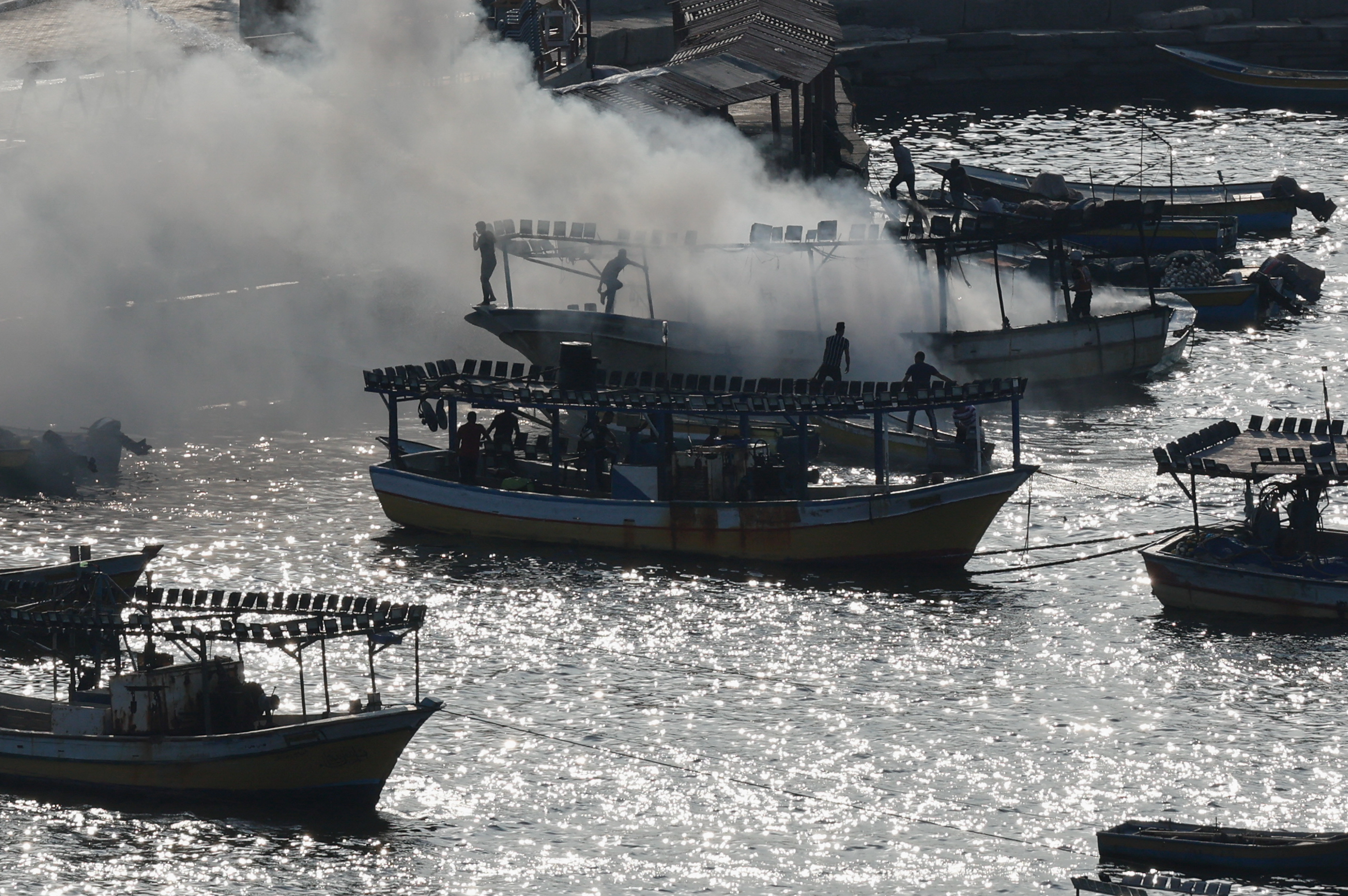
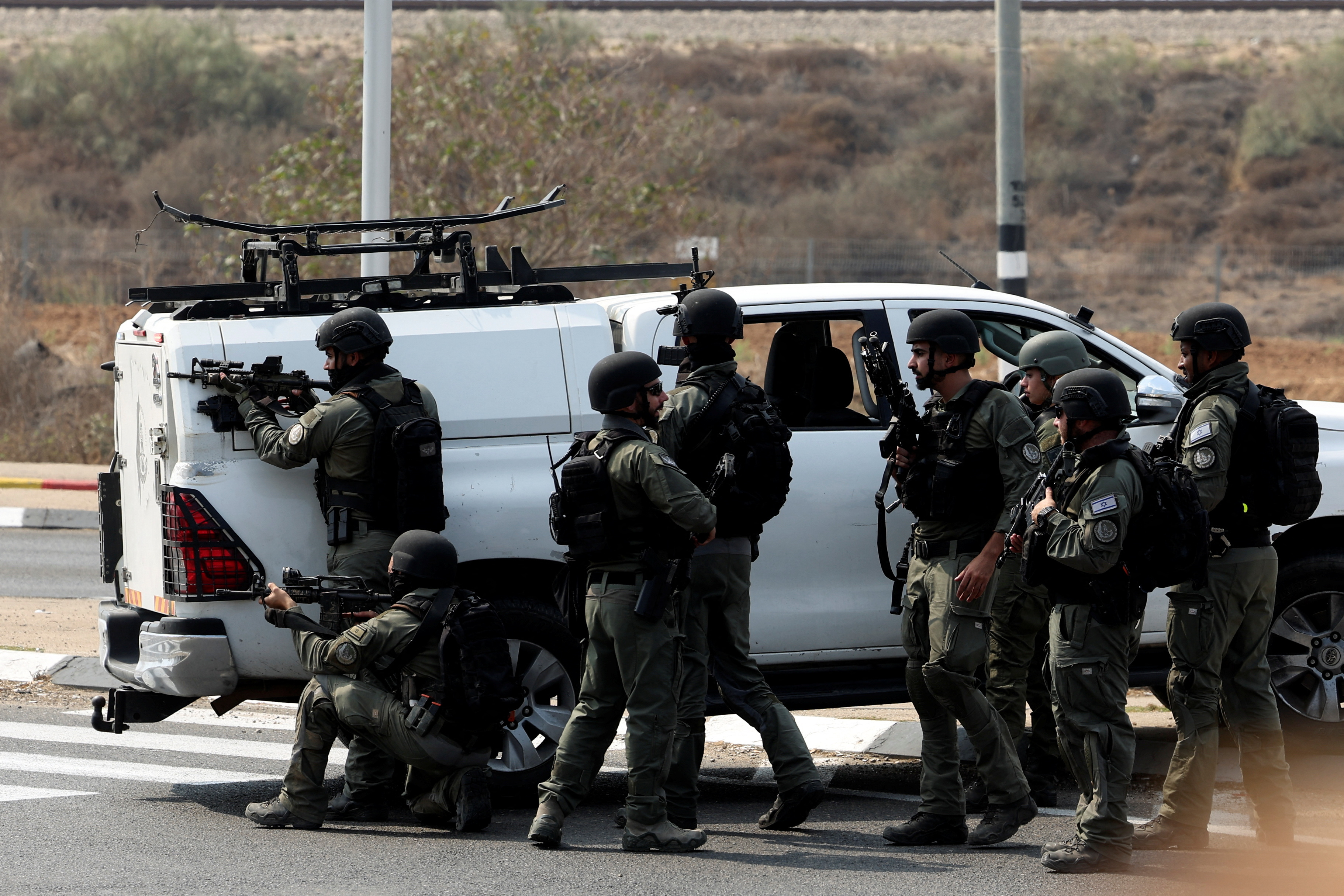
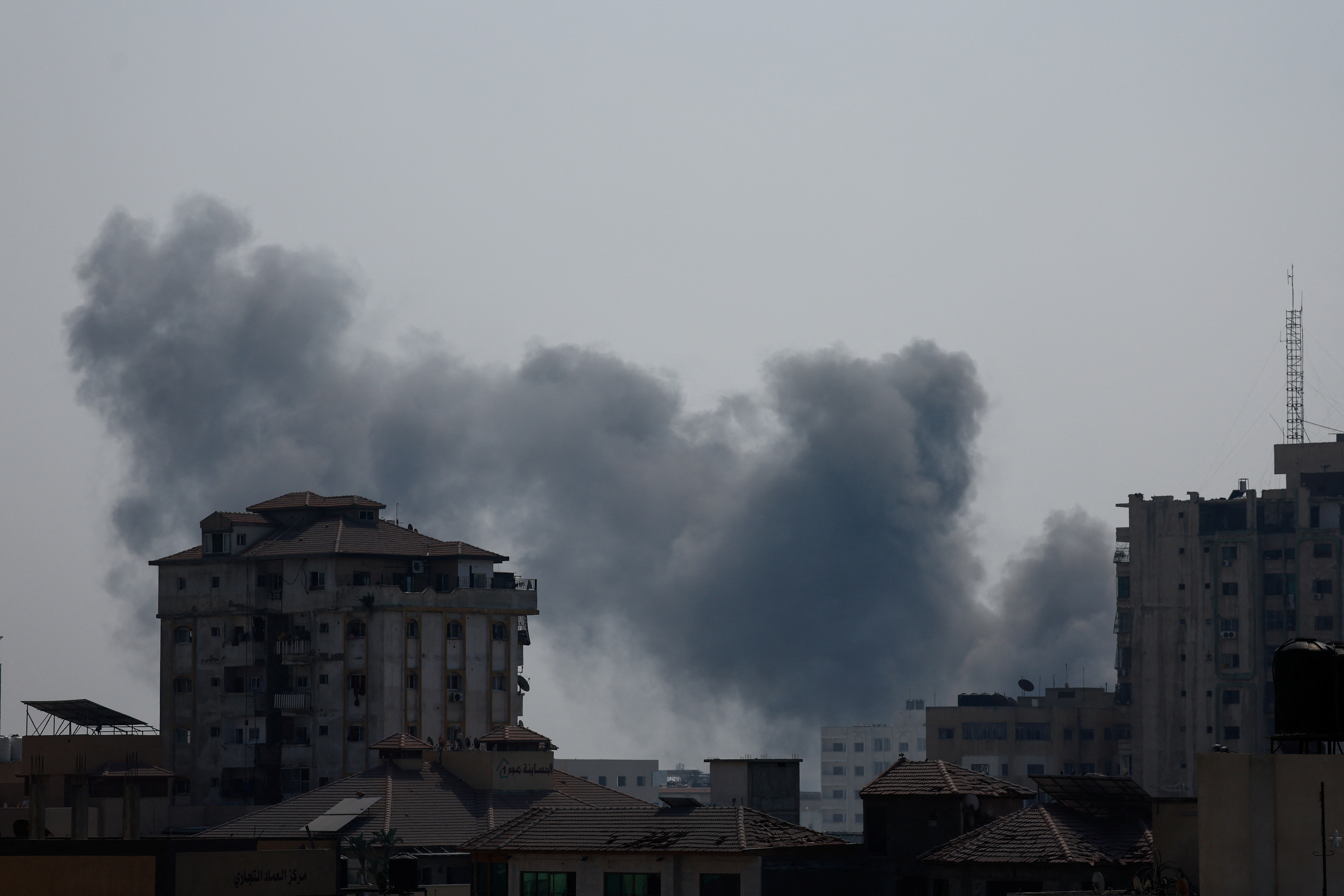
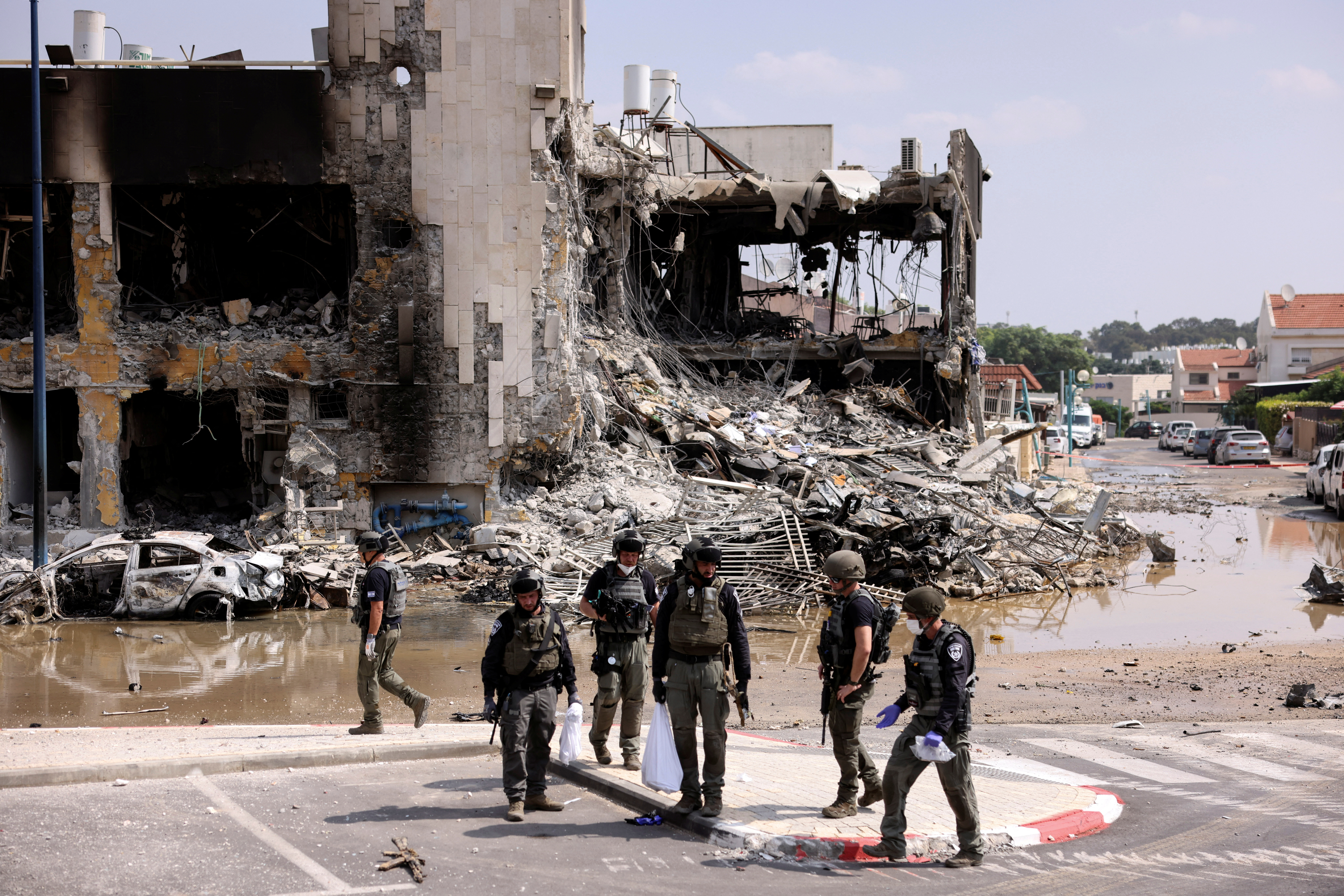
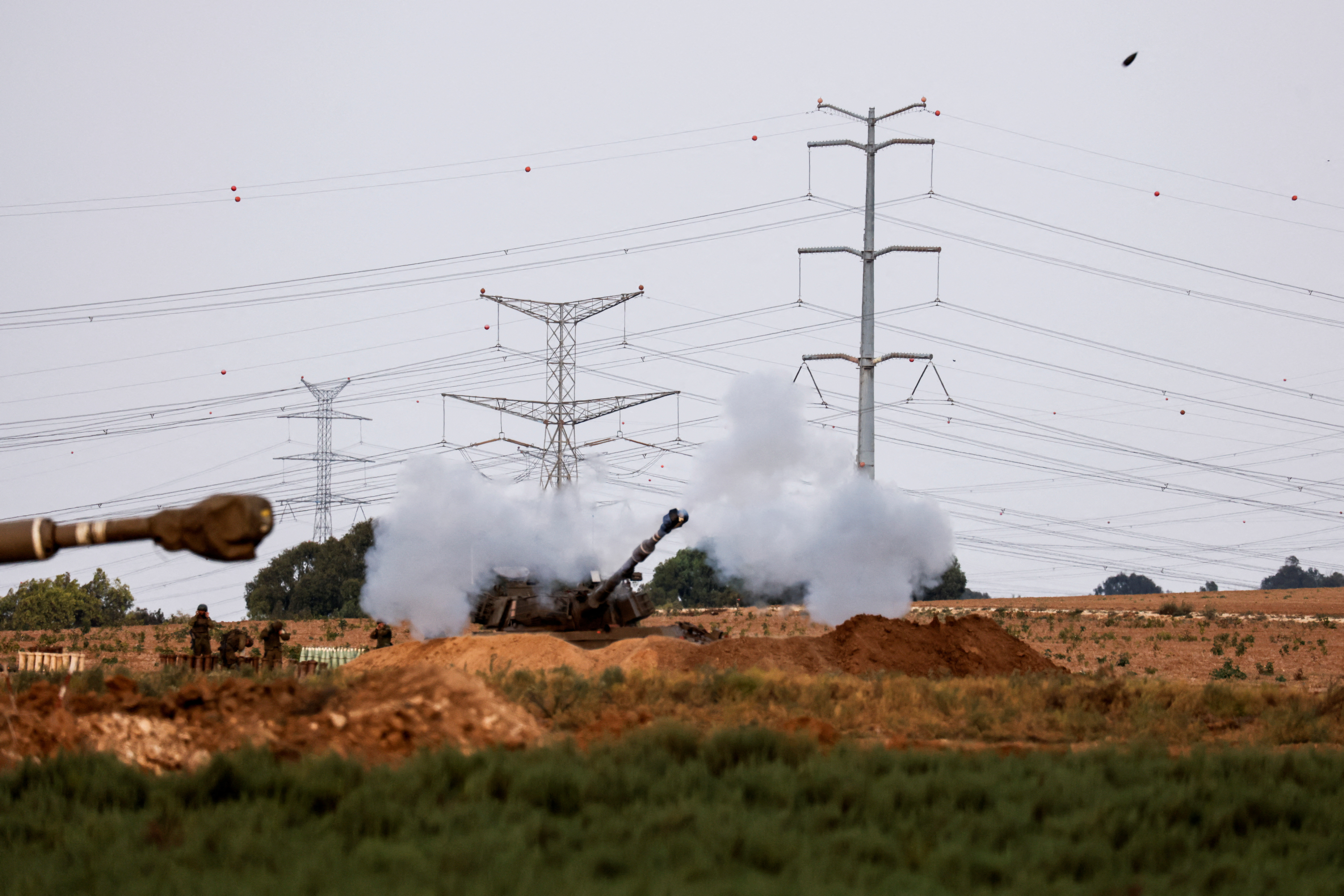
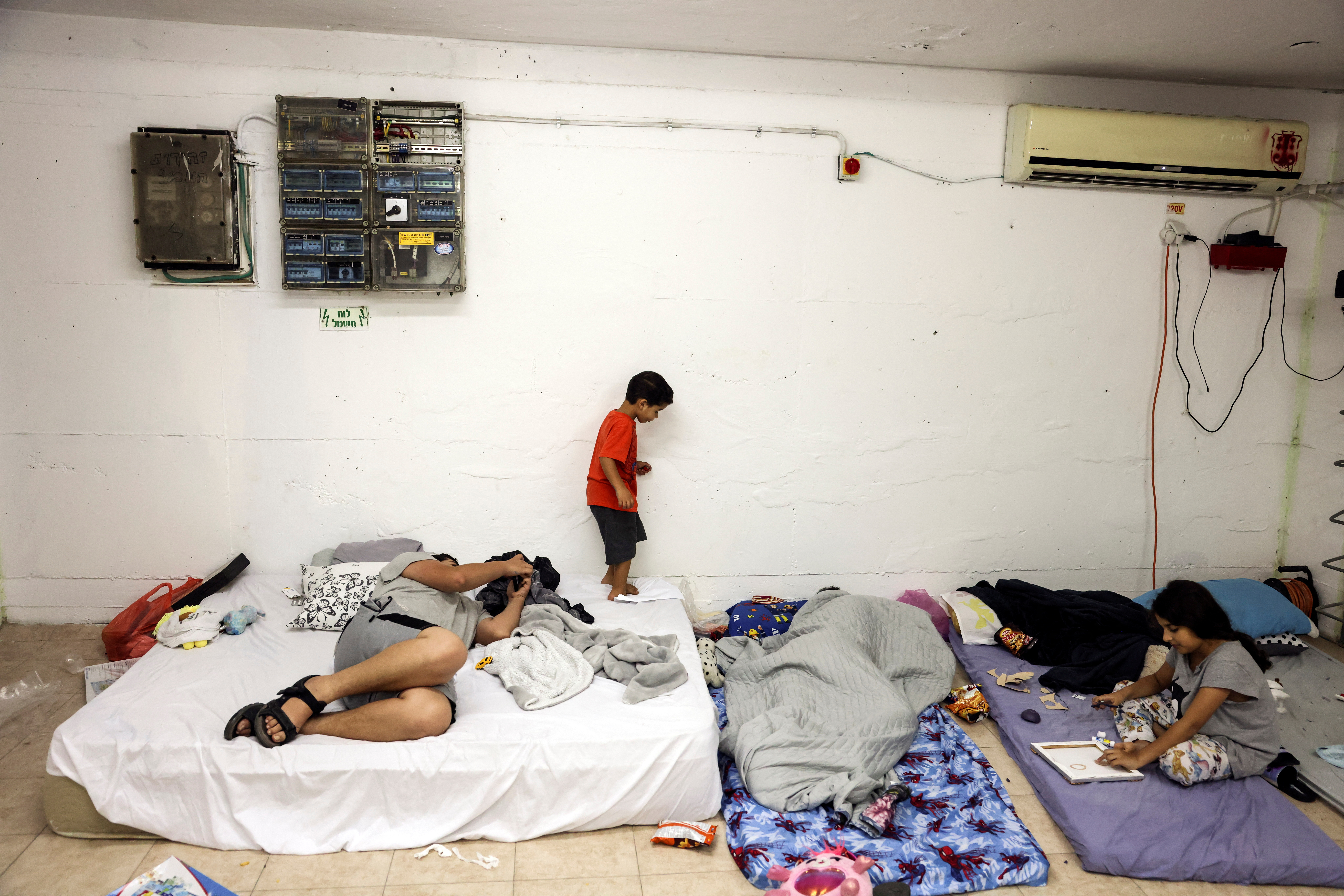
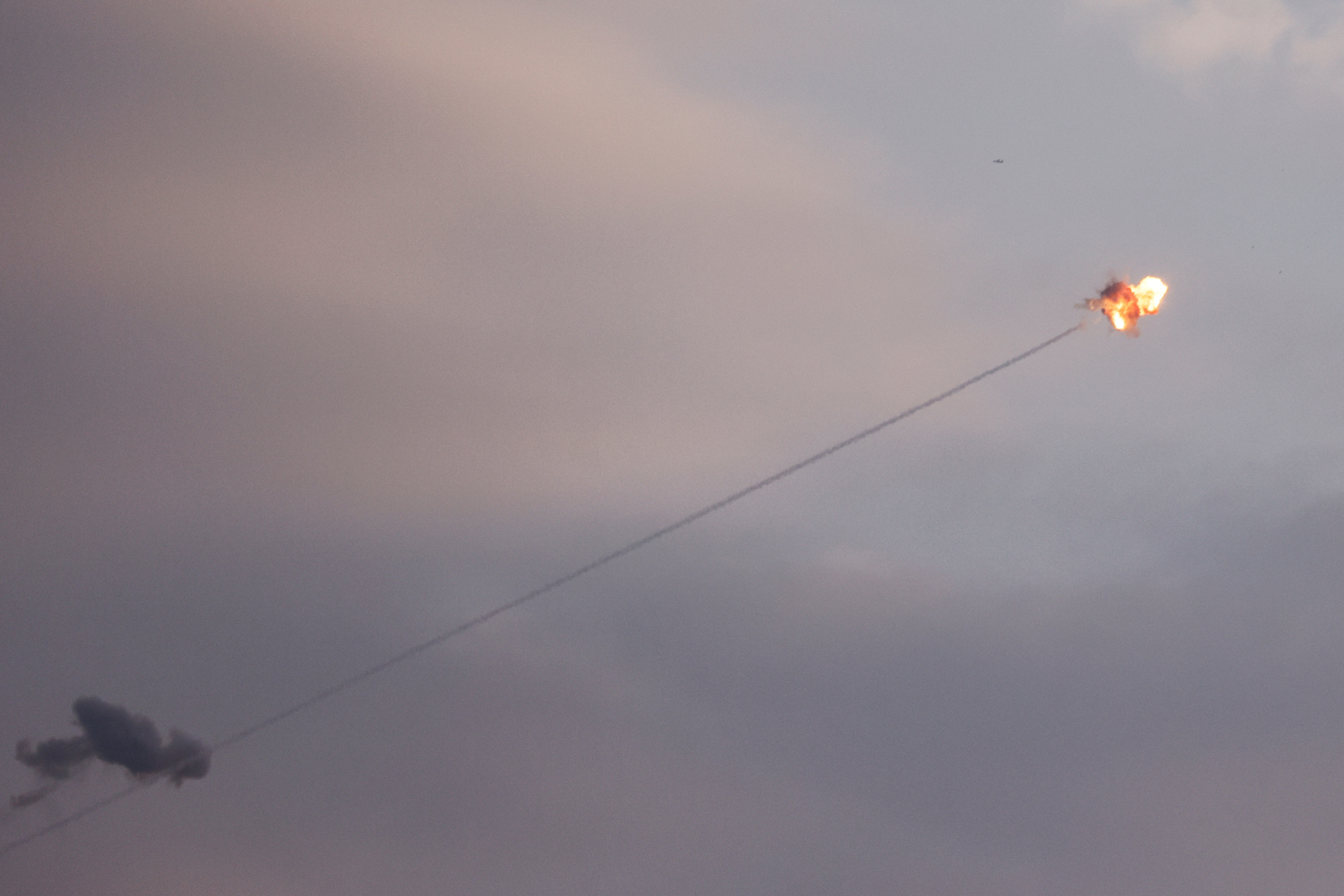
The post Israel retaliates after Hamas attacks, deaths pass 1,100 first appeared on The News And Times – thenewsandtimes.com.
